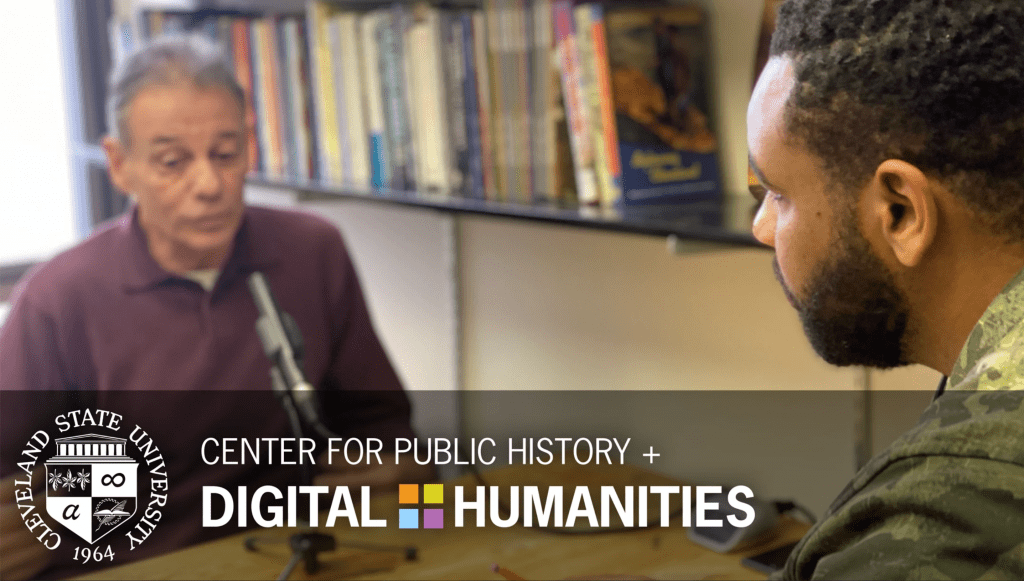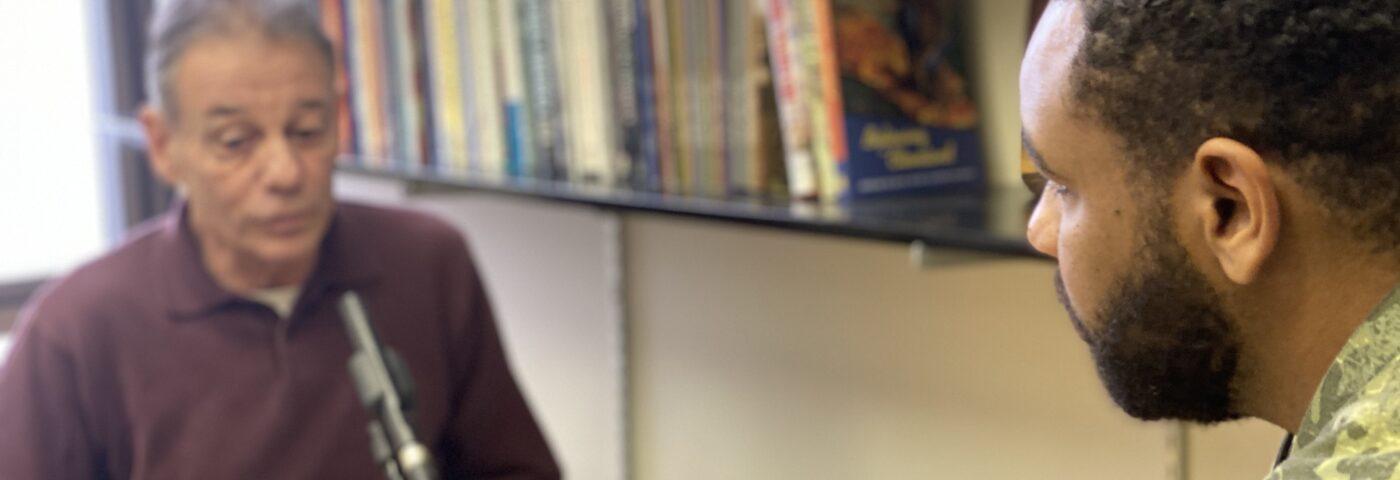CLEVELAND VOICES is an archive of more than 1,100 interviews collected since 2002. It represents untold hours of labor by students, faculty, and staff in the CSU Department of History, documenting the perspectives of some of Cleveland’s most active citizens and leaders. In total, nearly 1,300 participants have contributed to this living collection. In 2020, we begin the process of transcribing the collection, which contains over 1,000 hours of audio. To achieve this ambitious goal, we need your help.
Background
The technology of oral history has changed over the decades. Just as we’ve transitioned from analog cassette recorders to digital recorders (and even smartphones), we are now transitioning from an era in which transcription was prohibitively expensive to one in which artificial intelligence can do most of the heavy lifting. Traditional transcription involved typing everything by hand; one hour of audio could often require up to 10 hours of transcription labor, depending on one’s listening and typing skills. Today, machines using artificial intelligence can generate a full transcript in minutes.
But… computers can’t solve all of our human problems. AI-generated transcripts are still somewhat error-prone and require the knowledge of content experts to review and revise the work, fixing spelling and grammatical errors, adding speaker labels and other metadata, and more. This process, while significantly faster, still takes at least a couple of hours per interview.
To date, each of our interviews have been logged and abstracted rather than transcribed. This gave researchers a head start in finding what they needed in each recording. It wasn’t ideal, but it fit in our budget. The move to full transcription has a number of benefits. Most importantly, it makes audio content more accessible to the hearing-impaired. That includes not just the deaf, but also the approximately 15% of American adults with hearing damage and age-related hearing loss. Further, transcription makes audio content more findable. With full-text search on clevelandvoices.org (as well as via search engines like Google), researchers will be able to find content that was previously invisible because it wasn’t included in the log or the abstract. Even better, we’ve redesigned the Cleveland Voices website so that users are just a single click away from listening to specific passages of the interview as they read along.
How You Can Help
We’ve teamed up with the CSU Foundation to create a crowdfunding campaign. We invite you to visit the campaign website, sponsor one or more interviews for $50 each, and share with friends and family on social media. Not only are sponsorships tax-deductible, your donation will become part of the archival record! Supporters may sponsor an interview using a personal, family, or business/organizational name, or choose to contribute anonymously or in memoriam.

We’re so excited to begin this new phase for Cleveland Voices and the Cleveland Regional Oral History Collection. With the funds from our crowdfunding campaign (coupled with partnerships with local non-profit organizations), we’ll be hiring CSU’s top history students – as well as recent grads and other local experts – to make sure our transcripts are of the highest quality. The work won’t be easy or fast, but some things are worth the extra effort.
Thank you for your time and generosity. We can’t do this without you!

